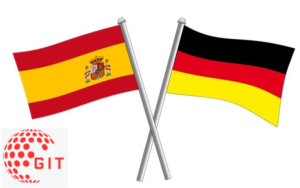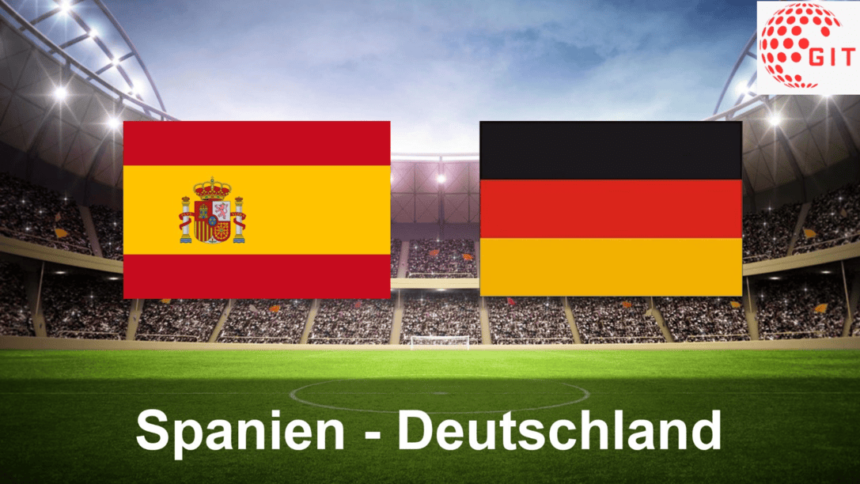Introduction to Spanien – Deutschland
“Spanien – Deutschland” refers to a complex, fascinating relationship between two remarkable European nations: Spain and Germany. Both countries hold prominent places in European history, culture, and modern economy. While geographically different, their ties remain close and dynamic. This article explores everything from cultural contrasts and economic cooperation to travel insights, offering a comprehensive understanding of Spanien – Deutschland.
Historical Connections Between Spanien – Deutschland
Early History and Influence
Historically, the relationship between Spanien – Deutschland dates back centuries. As part of the Holy Roman Empire, Germany interacted with Spain on various occasions, including in conflicts and alliances. One of the earliest strong connections was during the Habsburg rule in Spain. The German Habsburg dynasty left a deep mark on Spanish politics, bringing Germany and Spain closer in governance and influence.
World Wars and Political Ties
During the 20th century, the relationship between Spanien – Deutschland became even more complex. Both countries faced significant challenges during the two World Wars. After the conflicts, both nations took different political paths, with Spain under Franco’s dictatorship and Germany splitting into East and West. Despite differences, both Spain and Germany eventually became allies in the European Union, fostering closer economic and political cooperation.
Cultural Differences: Spanien – Deutschland
Language and Communication Styles
One noticeable cultural aspect of Spanien – Deutschland is language. Spanish and German are fundamentally different languages, with unique expressions and tones. Spanish communication often includes expressive gestures, while Germans are known for their straightforward and clear approach. These differences reflect the individual characteristics of Spanien – Deutschland in communication and social interactions.
Social Structure and Values
Social values vary in Spanien – Deutschland. Spanish society places high importance on family bonds and community, while German society values individual responsibility and organization. While both cultures emphasize hard work, German society is known for its punctuality and discipline, whereas Spain enjoys a more relaxed, family-oriented lifestyle, reflected in the practice of the “siesta” and extended family gatherings.
Festivals and Celebrations
Festivals offer insight into the traditions of Spanien – Deutschland. Germany is famous for its Oktoberfest, a vibrant beer festival celebrated globally. Spain, however, is known for its colorful festivities like La Tomatina and the Running of the Bulls in Pamplona. These festivals symbolize the unique traditions and cultural pride of each nation.
Economic Cooperation Between Spanien – Deutschland
Trade Relations
Trade is a significant component of Spanien – Deutschland’s relationship. Germany is one of Spain’s largest trade partners, with extensive import and export activities. Spanish exports to Germany include vehicles, machinery, and agricultural products, while Germany exports automobiles, chemicals, and machinery to Spain. This trade exchange strengthens their economies and promotes European unity.
Tourism and Economic Impact
Tourism is a major economic connector between Spanien – Deutschland. Millions of Germans visit Spain annually, attracted by the sunny beaches and rich history of cities like Barcelona and Seville. Spain, with its warm climate, remains a top destination for German tourists, which greatly supports the Spanish economy. Similarly, Spanish tourists visit Germany, especially during festive seasons, adding to Germany’s tourism industry.
Travel Insights: Visiting Spanien – Deutschland
Spain: Top Destinations for German Tourists
For Germans, visiting Spain often includes cities like Madrid, Barcelona, and the Balearic Islands. Madrid, the capital city, offers historical sites and a lively urban atmosphere. Barcelona, famous for its art and architecture, particularly the works of Gaudí, attracts visitors worldwide. The Balearic Islands, including Mallorca, are popular spots for German tourists seeking sun and beach experiences.
Germany: Top Destinations for Spanish Tourists
In Germany, popular destinations for Spanish tourists include Berlin, Munich, and the Black Forest. Berlin, the capital, provides a unique blend of history and modernity, with attractions such as the Berlin Wall and the Brandenburg Gate. Munich, home to Oktoberfest, attracts visitors interested in Bavarian culture. The Black Forest is a picturesque region known for its natural beauty, appealing to nature lovers.
Travel Tips for Spanien – Deutschland
When traveling between Spanien – Deutschland, it’s essential to consider cultural and practical tips. For example, Germans visiting Spain should remember that business hours may vary due to the “siesta,” while Spanish tourists should be prepared for Germany’s punctuality and structured schedules. Knowing a few phrases in each language can also enhance the travel experience and improve interactions.
Education Systems in Spanien – Deutschland
German Education System
Germany’s education system is known for its structure and quality. It emphasizes vocational training, with programs that prepare students for specific careers. Universities in Germany, such as the University of Heidelberg and the Technical University of Munich, are globally renowned, attracting students from around the world, including Spain.
Spanish Education System
Spain’s education system focuses on a balance of academic knowledge and social skills. Universities in Spain, such as the University of Barcelona and Complutense University of Madrid, offer a broad range of programs. Educational exchange programs between Spanien – Deutschland foster cross-cultural learning, enhancing the academic experience for students in both countries.
Food and Culinary Experiences in Spanien – Deutschland
German Cuisine: Hearty and Rich
German cuisine is hearty, featuring dishes like sausages, potatoes, and schnitzel. Oktoberfest highlights traditional German food, offering dishes like pretzels, bratwurst, and beer. German food is known for its flavor and richness, providing a unique culinary experience.
Spanish Cuisine: Flavorful and Diverse
1.Spanish cuisine is diverse and flavorful, featuring dishes like paella, tapas, and churros.
2.Spanish food emphasizes fresh ingredients, with olive oil, garlic, and seafood as staples.
3.Spain’s Mediterranean diet is famous worldwide, promoting a healthy, balanced lifestyle.
Environmental and Sustainability Efforts in Spanien – Deutschland
Germany’s Commitment to Sustainability
Germany is a global leader in sustainability, focusing on renewable energy and green initiatives. The country promotes eco-friendly practices and has ambitious goals for reducing carbon emissions. Germany’s commitment to sustainability influences Spain, fostering cooperation in environmental efforts.
Spain’s Growing Environmental Awareness
Spain has made strides in environmental protection, focusing on renewable energy sources like wind and solar power. Spain’s initiatives to protect natural landscapes, such as national parks, reflect the country’s commitment to sustainability. The cooperation between Spanien – Deutschland in sustainability projects demonstrates the shared responsibility for the environment.
Sports and Athletic Achievements in Spanien – Deutschland
Football Rivalries and Successes
Football is a significant part of both Spanish and German cultures. The rivalry between the national teams of Spanien – Deutschland has produced memorable matches and thrilling competitions. Both Spain and Germany have won the FIFA World Cup, showcasing their skill and passion for the sport. This mutual love for football strengthens the sportsmanship and friendship between the two countries.
Other Popular Sports
Besides football, basketball and handball are popular sports in Spanien – Deutschland. Spain has produced world-famous basketball players, while Germany has a strong handball tradition. The athletic achievements of Spanien – Deutschland contribute to a friendly rivalry that benefits European sports overall.

FAQs: Common Questions About Spanien – Deutschland
What are the main cultural differences between Spanien – Deutschland?
The primary cultural differences include communication styles, social structures, and traditions. Germans are typically punctual and direct, while Spaniards emphasize family and community values with a relaxed lifestyle.
How strong is the economic relationship between Spanien – Deutschland?
The economic relationship is strong, with significant trade and tourism connections. Germany is one of Spain’s largest trade partners, and millions of German tourists visit Spain each year.
What are the top travel destinations in Spanien – Deutschland?
In Spain, popular destinations for German tourists include Madrid, Barcelona, and Mallorca. In Germany, Spanish tourists often visit Berlin, Munich, and the Black Forest.
How do Spanien – Deutschland differ in their education systems?
Germany’s education system emphasizes vocational training, while Spain focuses on academic knowledge and social skills. Both countries have prestigious universities and participate in educational exchange programs.
Are there shared environmental goals between Spanien – Deutschland?
Yes, both countries focus on sustainability and renewable energy, cooperating on environmental projects and promoting eco-friendly practices.
Conclusion
Spanien – Deutschland showcases a fascinating blend of similarities and differences. From cultural and historical connections to economic and travel ties, these two nations offer unique experiences for visitors and residents alike. Understanding the dynamics of Spanien – Deutschland not only enriches our knowledge but also strengthens European unity and cross-cultural respect. Whether you are planning a trip or exploring new cultures, the bond between Spain and Germany offers valuable insights into European diversity.





